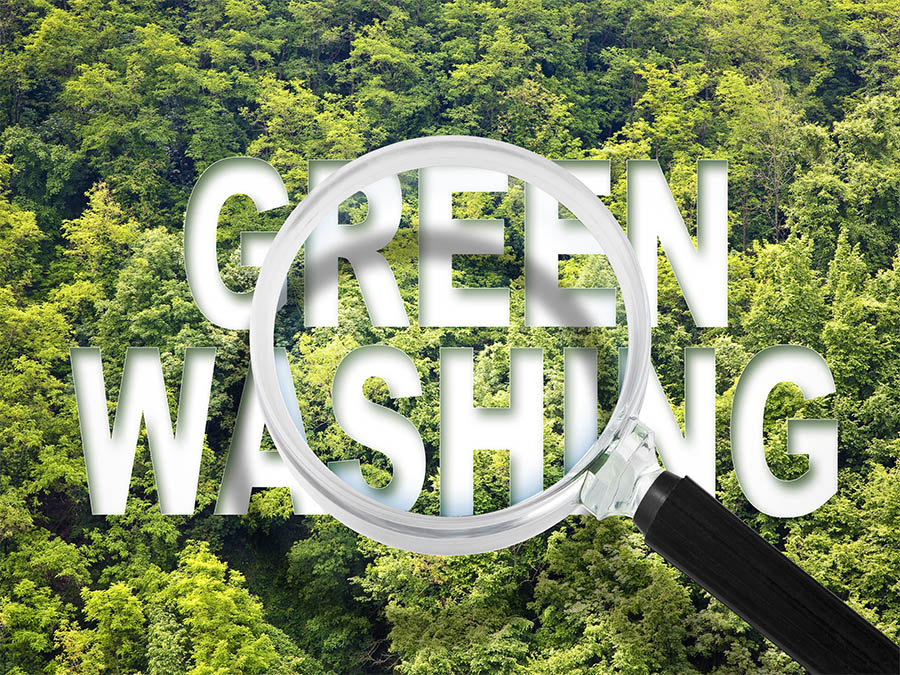What is Greenwashing?
This term has emerged as a pervasive and concerning phenomenon in today’s consumer-driven world.
In a time when environmental consciousness is on the rise, companies are quick to capitalize on the trend, often at the expense of genuine sustainability efforts.
Here at Sustainablefashion.ie, we explore the concept of greenwashing, delving into its definition, the tactics employed, its consequences, and strategies to combat this misleading practice.
Defining Greenwashing
Greenwashing is a deceptive marketing strategy used by businesses to create the illusion of environmental responsibility when, in reality, their practices may be far from sustainable.
The term “greenwashing” combines “green,” which symbolises eco-friendliness, and “whitewashing,” referring to the act of concealing or glossing over undesirable facts.
Essentially, it involves portraying a company or its products as environmentally friendly through misleading advertising and marketing campaigns.
Tactics Employed in Greenwashing
This is where we all must become more vigilant and do our homework on companies who offer sustainable products, and those who claim to.
1. Vague or Ambiguous Terminology
Greenwashing often relies on ambiguous terms such as “natural,” “eco-friendly,” or “green,” which lack specific definitions or standards. This makes it difficult for consumers to discern the authenticity of a product’s environmental claims.
2. Cherry-Picked Information
Companies may selectively highlight environmentally friendly aspects of their operations while conveniently omitting less favourable practices.
This selective disclosure can create a distorted perception of the company’s overall commitment to sustainability.
3. False Certifications and Labels
Some companies use deceptive certifications or labels to imply that their products meet certain environmental standards when, in fact, they do not. Consumers may trust these labels without realising that they lack credibility.
4. Green Imagery and Symbolism
The use of natural imagery, such as trees, leaves, or the colour green, can create a subconscious association with environmentalism, even when the product or company has no genuine eco-friendly attributes.
Consequences of Greenwashing
We have all become familiar with the term “Greenwashing” right? Well lets take a quick look at the consequences it can have for the planet and people who work in the industry.
1. Misleading Consumers
Perhaps the most significant consequence of greenwashing is its potential to mislead consumers.
When individuals believe they are making environmentally responsible choices, they may be less motivated to seek out genuinely sustainable alternatives.
2. Erosion of Trust
Greenwashing erodes trust in businesses and the environmental movement as a whole.
When consumers discover that they have been deceived, they become sceptical of all environmental claims, making it harder for truly sustainable companies to gain credibility.
3. Undermining Real Sustainability Efforts
Companies that engage in greenwashing divert attention and resources away from authentic sustainability initiatives.
This ultimately hinders progress towards addressing pressing environmental issues.
4. Legal and Reputational Risks
In some cases, companies practicing greenwashing may face legal action for false advertising or deceptive marketing. Additionally, their reputation can suffer severe damage when exposed.
How To Combat Greenwashing
- Educating Consumers: Promoting consumer education is crucial in the fight against greenwashing. Educated consumers are more likely to scrutinize environmental claims and make informed choices.
- Regulatory Measures: Governments and regulatory bodies should enforce stricter guidelines for environmental claims in advertising. Penalties for greenwashing should be substantial to deter companies from engaging in deceptive practices.
- Third-Party Certification: Encouraging the use of reputable third-party certifications and labels can provide consumers with a reliable way to identify genuinely eco-friendly products and companies.
- Transparency and Reporting: Companies should be more transparent about their environmental practices and report on their sustainability efforts accurately. This can be achieved through annual sustainability reports and audits.
- Consumer Advocacy and Activism: Consumer advocacy groups play a vital role in exposing greenwashing and holding companies accountable. Public pressure and activism can drive change within the corporate world.
And Finally
Greenwashing represents a significant challenge in the contemporary world, as companies seek to profit from the growing demand for environmentally responsible products and practices.
To combat this deceptive marketing strategy, a multifaceted approach is necessary, involving consumer education, regulatory measures, industry standards, and corporate transparency.
By unmasking greenwashing and promoting genuine sustainability, society can move closer to a more environmentally conscious and responsible future.






